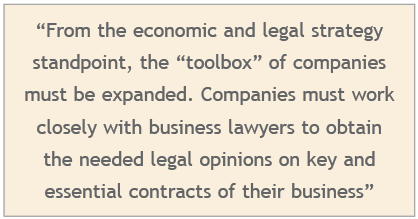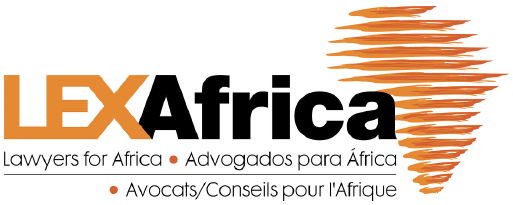 By Willy Bashiya Mbayi, Emery Mukendi Wafwana & Associates
By Willy Bashiya Mbayi, Emery Mukendi Wafwana & Associates
Companies worldwide are, or will inevitably be, affected in the short and medium-term by the coronavirus pandemic (Covid-19). Decline in commodity prices due to the falling demand in China, travel restrictions, city and provincial quarantines, confinement of people willingly or by force to their homes, and the reduced job mobility affect the trade of goods and services for hundreds of millions of people around the world.
The Covid-19 pandemic is very different from the financial crisis that affected the financial sector in 2008. It keeps everything in a standstill or, at least, in slow motion for several months. No one knows exactly how long this situation will last. However, the next few months should allow a clearer assessment of the economic impact of the pandemic (eg, the unemployment insurance claims in the US during the week of March 8 were already up to 282,000). We might also observe a high and negative level of debt on banks’ financial liquidity. The healthcare system and losses of skilled medical workers, the negative effects of the education system and force majeure litigation, which will lead business lawyers to work overtime to protect the interests of their clients.

How can leaders and the corporate world manage the effects of the Covid-19 pandemic?
From the economic and legal strategy standpoint, the “toolbox” of companies must be expanded. Companies must work closely with business lawyers to obtain the needed legal opinions on key and essential contracts of their business such as lease agreements, accounts payable, insurance contracts, or even on thematics such as the extension of loans, debt collection in cases of force majeure and renegotiation of terms and conditions of contracts. Similarly, companies will have to use their lawyers to obtain legal opinions to make informed decisions on the maintenance, suspension and/or the unilateral or mutual termination, as the case may be, of joint venture agreements, exploration, exploitation of mineral, oil and gas resources, as well as the various contracts on energy, airport, port, railway and other infrastructure-related agreements. In this exceptional context, the best option to keep businesses at a certain threshold of profitability is to effectively use new technologies to reduce certain operating expenses such as office rental by minimising the use of offices with virtual video conferences, online services and remote working. Marketing expenses can be very well optimised through the use of social media, online networks and webinars.
Business leaders should keep calm and maintain a long-term perspective. In the short run, government around the world are passing laws and giving incentives to mitigate the impact of the Covid-19 (such as payroll loans, tax holiday, New York State will implement a 90-day moratorium on evictions for residential and commercial tenants).
In the medium and long run, the African economy in new technologies, healthcare infrastructure, the energy industry and other key sectors will offer a huge opportunity for suppliers and investors from around the world.
____________________________
LEX Africa is an alliance of law firms formed in 1993 and with over 600 lawyers in 26 African countries. www.lexafrica.com.
____________________________


























